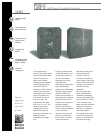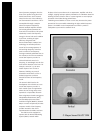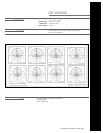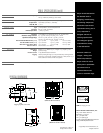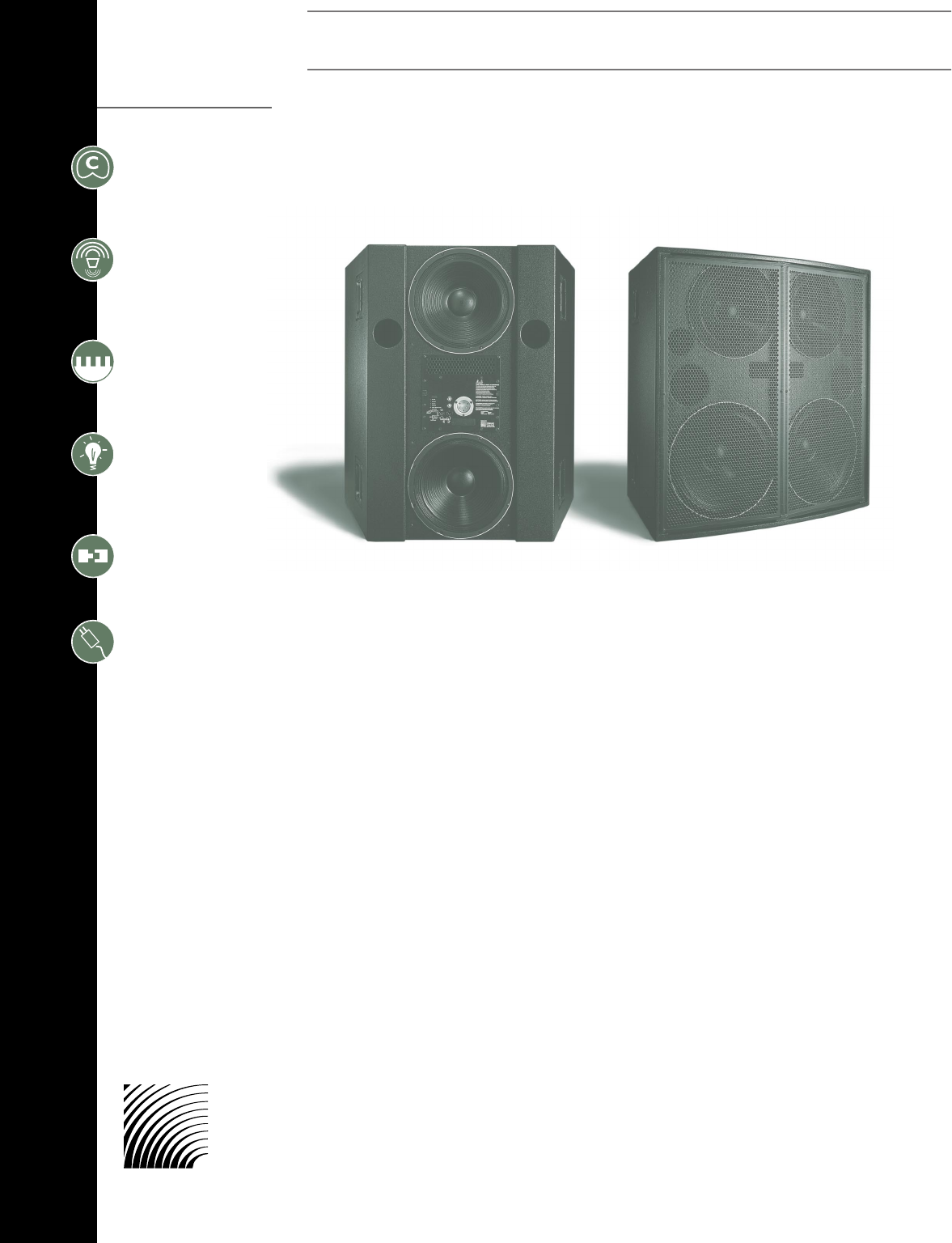
The tight response pattern
of the PSW-6 helps to steer
all frequencies away from
the rear of the cabinet,
eliminating much of the
reverberant noise
traditionally associated with
large scale full-range
speaker arrays. Additionally,
the tight response pattern
allows the PSW-6 to be
placed in close proximity to
walls without the traditional
problems associated with
subwoofers and subtractive
boundary conditions.
Control of low frequency
sounds through cancellation,
or more accurately,
directional steering is only
possible in exceptionally
linear systems. Linearity is
critically important to
In an unprecedented
historical achievement, Meyer
Sound’s self-powered PSW-6
is the first subwoofer to
exhibit a true cardioid
coverage pattern throughout
its entire operating range.
This makes it the first
subwoofer to offer directional
control of low frequencies.
Covering more than two full
octaves, the PSW-6 has a
front to back SPL ratio of
more than 15dB, and
typically more than 20dB,
from 30 Hz to 125 Hz. The
horizontal and vertical
coverage patterns of the
PSW-6 are symmetrical,
ensuring consistent SPL and
frequency response
throughout the coverage
area.
FEATURES
directional steering as the
relationship between
transducers must be
consistent even while the
music changes in level. Non-
linearity or distortion above
a few percent would make
directional steering
impossible.
For nearly twenty years,
Meyer Sound has been
committed to developing
accurate, high-quality, linear
sound systems. As a result
of this continuing effort,
Meyer Sound has developed
powerful, low distortion
transducers unequaled in
their linear attributes.
The cardioid pattern refers
to the heart-shaped polar
pattern of the speaker (see
illustration next page).
Self-Powered Cardioid Subwoofer
PSW-6
Cardioid coverage
pattern
Front-to-back SPL
ratio of over 15 dB
Integrated control
electronics and
amplifiers
Intelligent AC
TM
System
Compatible with the
Remote Monitoring
System
TM
(RMS)
TruPower™
Limiting (TPL)
Meyer
Sound
Superior
engineering
for the art
and science
of sound.



